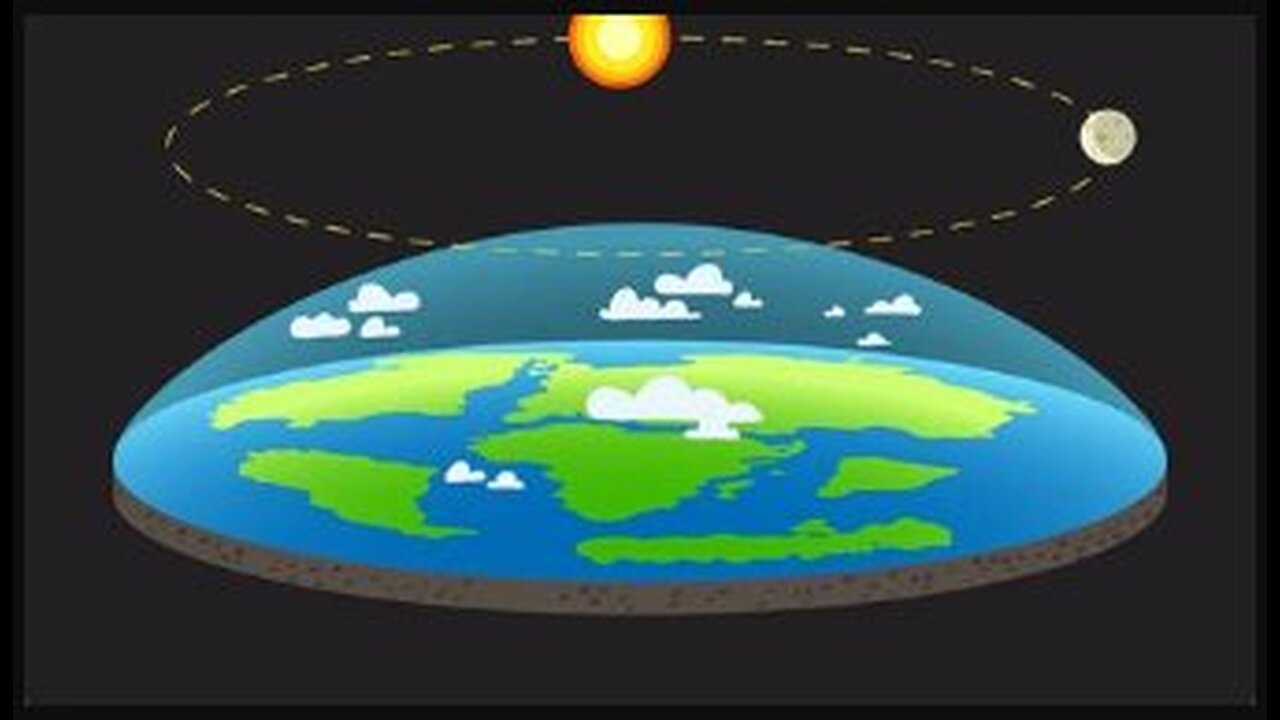Premium Only Content

How Do Flat Earthers Explain Lunar Eclipse? - Physics Frontier
How Do Flat Earthers Explain Lunar Eclipse? - Physics Frontier
How Do Flat Earthers Explain Lunar Eclipse? Lunar eclipses are fascinating celestial events that capture the attention of many. In this video, we dive into the explanations offered by flat-Earthers for this intriguing phenomenon. While the scientific community has a well-established understanding of lunar eclipses—where the Earth casts its shadow on the moon—flat-Earth theories present an alternative view that raises questions.
We will discuss the flat-Earth model, which suggests that the Earth is a flat disk with the sun and moon orbiting above it. This perspective leads to some unique interpretations of how lunar eclipses occur. Flat-Earthers propose the existence of a mysterious "shadow object" that supposedly causes the eclipse, but this idea lacks clarity and detail.
Additionally, we will examine the challenges flat-Earthers face in explaining the movement of the shadow during an eclipse. The scientific explanation involves the Earth's rotation and the moon's orbit, but flat-Earth theories often struggle to account for this observed behavior.
Join us as we unpack these theories and highlight the contrast between them and the scientifically accepted explanation. Don't forget to subscribe for more engaging discussions on physics and astronomy!
⬇️ Subscribe to our channel for more valuable insights.
🔗Subscribe: https://www.youtube.com/@Phys1csFront...
#LunarEclipse #FlatEarthTheory #Astronomy #CelestialEvents #ScienceVsMyth #EarthShadow #Physics #MoonPhases #EclipseExplained #SpaceScience #ScientificUnderstanding #FlatEarthDebate #Cosmos #Astrophysics #SpaceEducation #PhysicsCommunity
About Us: Welcome to Physics Frontier, your gateway to the captivating world of physics and astronomy! Dive deep with us as we explore the mysteries of the universe, from the birth of stars in nebulae to the enigmatic nature of black holes. Our channel covers a rich tapestry of topics, including celestial mechanics, cosmology, and the latest discoveries from NASA and the Leibniz-Institute.
-
 12:33
12:33
joegecko's Documentary Channel
7 hours agoTHEY HAVE ARRIVED! HYBRIDS OF ANIMALS AND HUMANS CREATED IN A LAB
74 -
 27:29
27:29
Dialogue works
1 day ago $1.94 earnedLarry C. Johnson: Leaked Epstein Revelations Send Trump Into Total Panic, Russia Dismantling Ukraine
10K18 -
 11:51
11:51
MattMorseTV
12 hours ago $31.75 earnedTrump just RIPPED OUT the BRAKES.
75.6K60 -
 16:09
16:09
Nikko Ortiz
1 day agoMilitary Fails That Got Soldiers In Trouble
9.73K7 -
 2:06:23
2:06:23
Side Scrollers Podcast
19 hours agoStreamer Awards WRECKED + Cloudfare OUTAGE + AI LOVED ONES?! + More | Side Scrollers
63.3K13 -
 1:54:13
1:54:13
The Michelle Moore Show
21 hours ago'Three Protocols For Miraculous Healing' Guest, Dr. Margaret Aranda: The Michelle Moore Show (Nov 18, 2025)
15.2K5 -
 49:56
49:56
GritsGG
15 hours agoCampaign End Game! Leveling & Progressing Into Level 2 Zone!
13.7K -
 8:18
8:18
The Pascal Show
13 hours ago $1.71 earnedWHOA! Trump ABSOLUTELY LOSES IT On A Reporter Asking About Epstein
10.8K16 -
 32:09
32:09
Comedy Dynamics
15 hours agoBest of Jesus Trejo: Stay at Home Son - Stand-Up Comedy
12.1K1 -
 55:43
55:43
TruthStream with Joe and Scott
1 day agoHoney and Lisa 11/17: How powerful we are, Trauma release, Becoming Sovereign (next healing event 11/20/25 @ noon eastern and 4pm eastern) #513
12.3K10